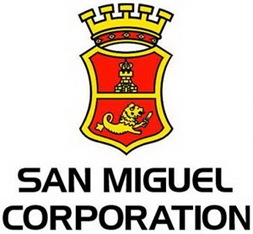
The conversion could be a violation of Republic Acts 3019 (Anti-Graft and Corrupt Practices Act), 6713 (Code of Conduct and Ethical Standards for Public Officials and Employees), and 7080 (An Act Penalizing the Crime of Plunder), and other pertinent laws, said leaders of coconut farmers groups and private citizens in a complaint affidavit.
The complainants also asked the Ombudsman to determine the culpability of the government officials of the previous Arroyo administration who had a hand in the conversion.
Sequestered in 1986
The 24 percent government stake in SMC consisted of more than 753 million common shares in the name of the Coconut Industry Investment Fund (CIIF) and its holding companies, which were established for coconut farmers during the Marcos regime.
The shares were sequestered in 1986 by the Presidential Commission on Good Government (PCGG) after the first Edsa People Power Revolution, on the basis that the shares were illegally bought using money from the coconut levy fund.
In September 2009, the Supreme Court granted a motion from the then Arroyo administration to convert the government’s SMC common shares into Series 1 preferred shares.
The high court held that the conversion was “advantageous to the public interest or will result in clear and material benefit to the eventually declared stock owners, be they the coconut farmers or the government itself.”
With the conversion, the SMC was given the option to redeem the preferred shares at P75 each any time it wanted, with holders of the preferred shares getting only an assured eight percent dividend in exchange for converting their shares.
Disadvantageous
On Oct. 5, 2012, SMC exercised this option, and opted to redeem 753,848,312 Series 1 preferred shares at the price of P75 per share, for a total of approximately P56.5 billion.
On the same day, however, PCGG Chairman Andres Bautista announced that the PCGG was looking for legal remedies to undo the grossly disadvantageous conversion of these 24 percent stake during the incumbency of his predecessor, Camilo Sabio.
In its “Preliminary Report for the Truth Commission,” the new PCGG described the conversion as “a questionable decision/agreement.”
Anomalous transaction
An audit made by the current PCGG leadership of all past transactions and deals entered into during the Sabio administration showed the conversion of the government’s SMC shares as “one of the biggest, multi-billion anomalous transactions” made by their predecessors.
According to Bautista, the primary issue with the conversion was the lock-in price of the government’s preferred shares Series 1, which it can now only sell for P75 per share.
“The government is estimated to have lost billions from the conversion, especially in view of the recent upsurge in the share price of SMC, which has been pursuing an aggressive diversification move under its president and chief operating officer Ramon Ang,” according to the complaint-affidavit.
Ang is the right-hand man of SMC chairman and chief executive officer Eduardo Cojuangco Jr., who was appointed by the late dictator Ferdinand Marcos as the administrator of the coco levy funds, which were the proceeds of a tax that the dictator imposed on the coconut industry.
Missed windfall
The complaint said that at the P159.50 share price of the common shares, the government would have reaped a windfall of more than P120.23 billion if the shares had been sold at that price.
With the conversion into preferred shares, which the SMC could redeem anytime at the lock-in price of P75, the government only stands to earn P56.53 billion from the 24 percent SMC shareholding.
“The determination that the conversion was advantageous to the national government on a purely financial standpoint has, in the light of subsequent events, proven to be mistaken,” the PCGG audit report said.
The complaint said the previous PCGG leadership committed grave abuse of discretion when it approved the conversion.